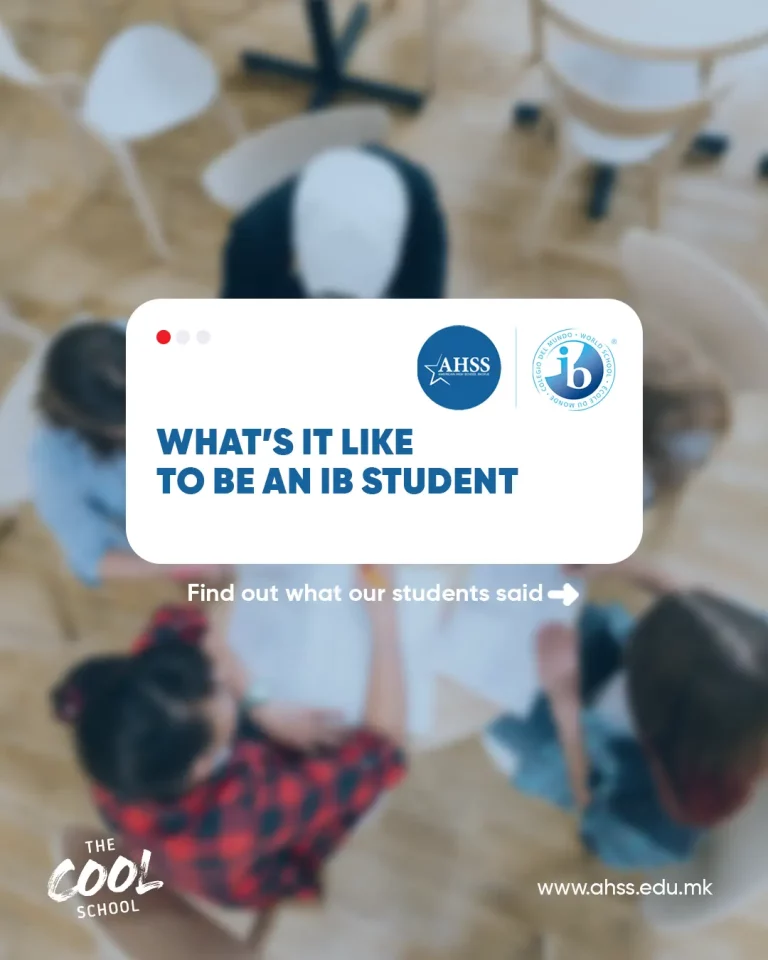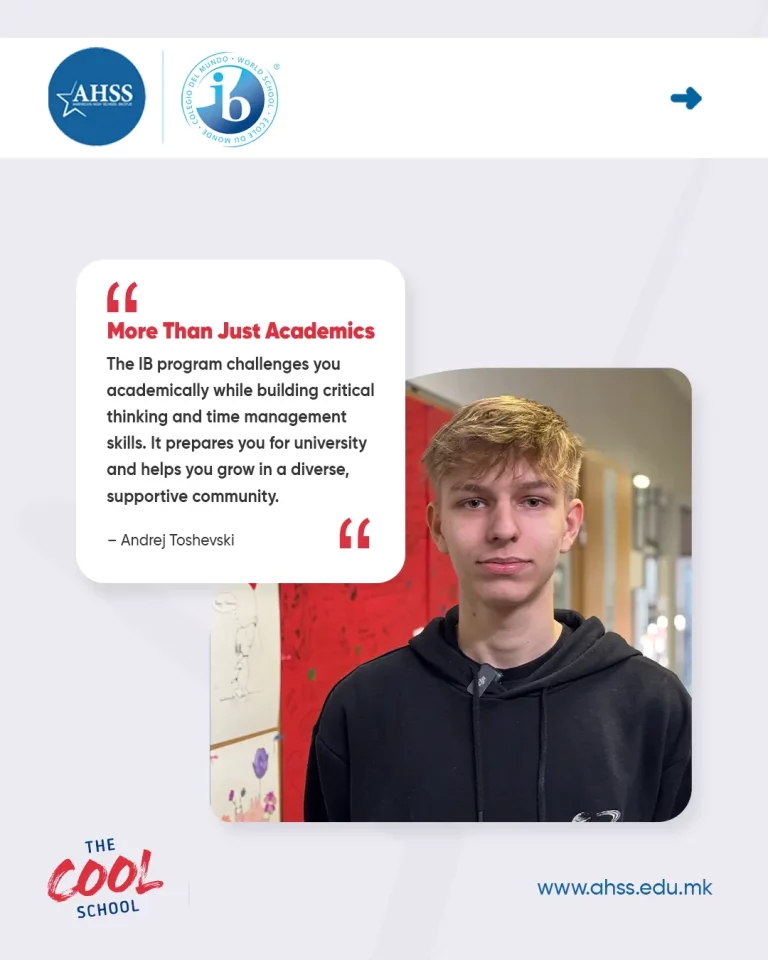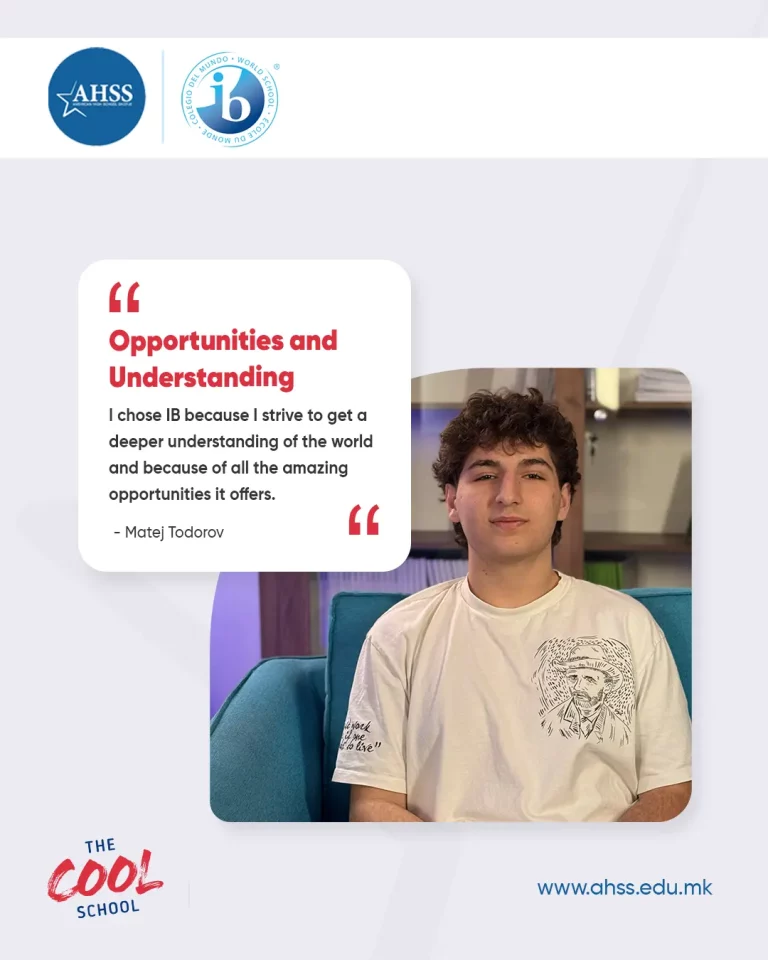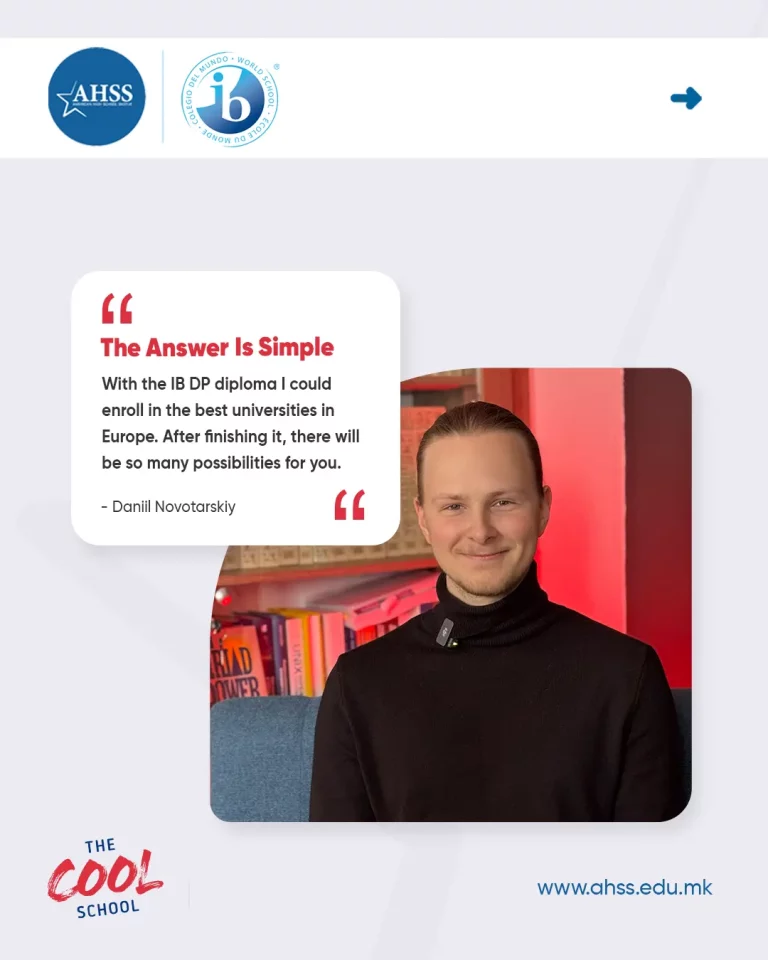ABOUT IB DP
Our academic programs support creative practitioners who strive for a world that’s brighter, more inclusive, relentlessly innovative, and ecologically resilient.
IB DIPLOMA PROGRAMME
Preparing students for success in higher education and to be active participants in a global society
What is an IB education?
The IB continuum of international education for students aged 3 to 19 years old is unique because of its academic and personal rigor. We challenge students to excel in their studies and in their personal development. We aim to inspire a love of learning throughout life that is marked by enthusiasm and empathy. The IB aspires to help schools develop well-rounded students who respond to challenges with optimism and an open mind, are confident in their own identities, make ethical decisions, join with others in celebrating our common humanity, and are prepared to apply what they learn in real-world, complex and unpredictable situations.
Approaches to teaching and learning
IB programs are taught by teachers who explicitly help students learn how to develop the attitudes and skills they need for both academic and personal success.
Approaches to teaching
There are six key pedagogical principles that underpin all IB programs. Teaching in IB programs is:
- based on inquiry;
- focused on conceptual understanding;
- developed in local and global contexts;
- focused on effective teamwork and collaboration;
- differentiated to meet the needs of all learners;
- informed by assessment (formative and summative).
Approaches to learning
This area develops essential skills that include skills of behavior and emotional management, skills that allow the student to monitor their own effectiveness in their learning, and skills that allow them to process information effectively (often called “study skills” in a school environment). Although these skills may be in use when developing a certain natural ability or talent, they are different from both ability and talent themselves because proficiency in any skill can be increased through the deliberate use of techniques and strategies, feedback, and challenge. Skills are therefore highly teachable.
Teaching and learning in the Diploma Programme (DP) therefore incorporate the development of:
- thinking skills;
- communication skills;
- social skills;
- self-management skills;
- research skills.
Although these are presented as distinct categories, there is some overlap and close connections between them. These categories should be seen as interrelated, as well as linking closely with the attributes highlighted in the IB learner profile. IB students work to become inquirers, knowledgeable, thinkers, communicators, principled, open-minded, caring, risk-takers, balanced and reflective.
What is the IB Diploma Programme?
The IB Diploma Programme is an academically challenging and balanced program of education, with final examinations, that prepares students aged 16 to 19 for success at university and in life beyond. It has been designed to address the intellectual, social, emotional, and physical well-being of students. The program has gained recognition and respect from the world’s leading universities.





